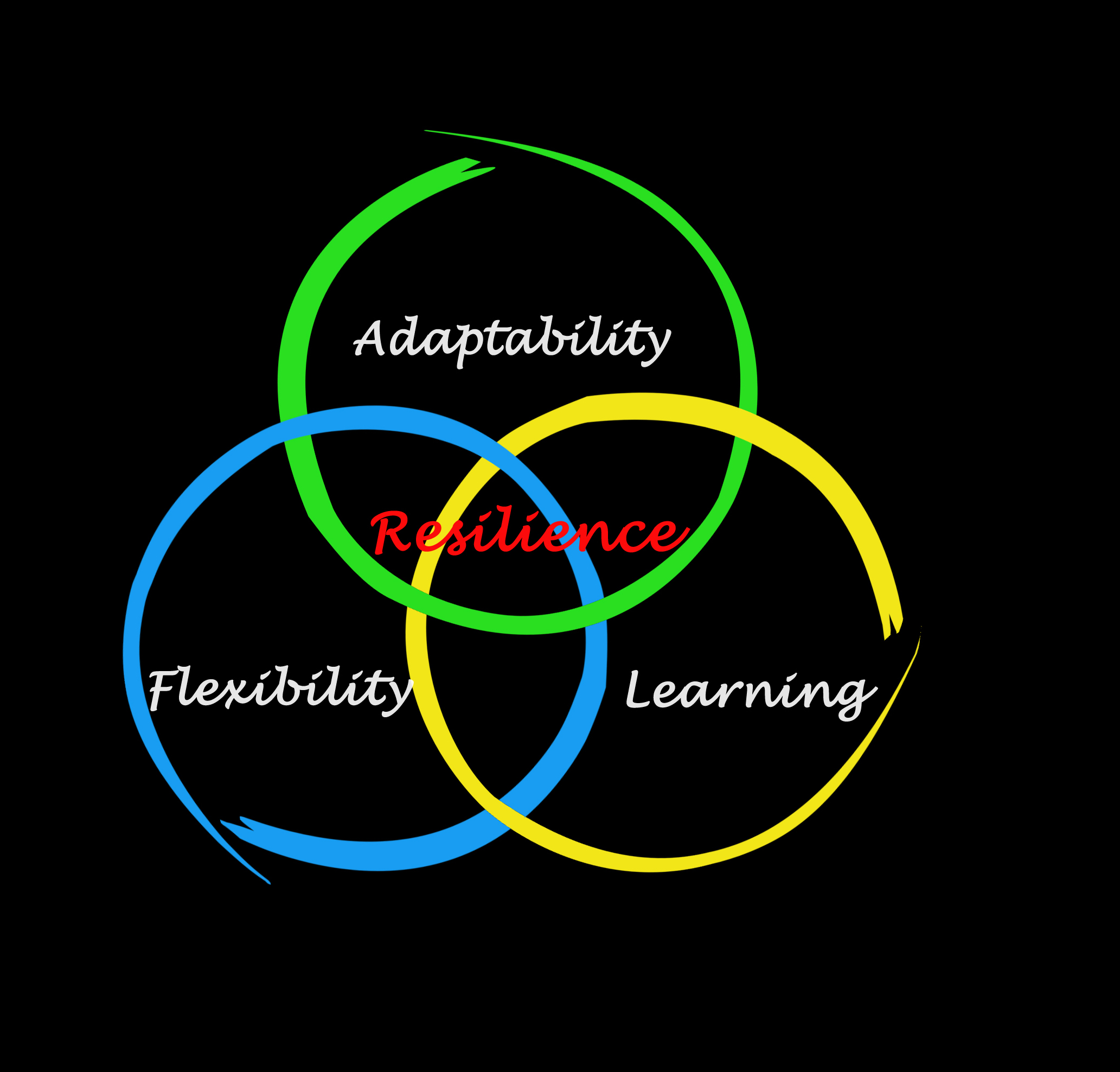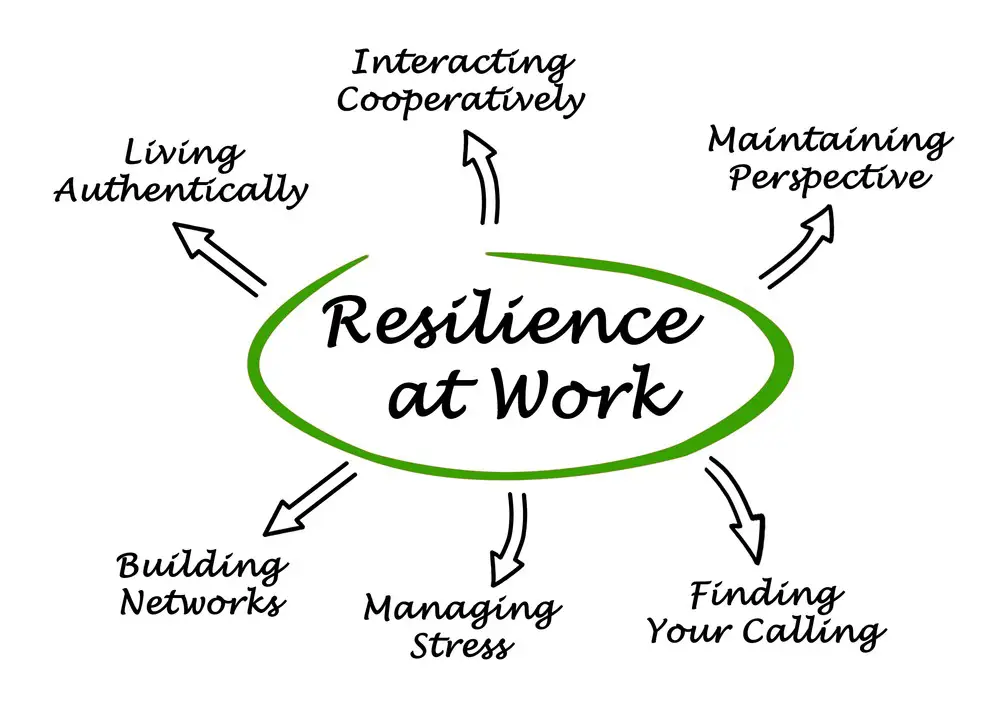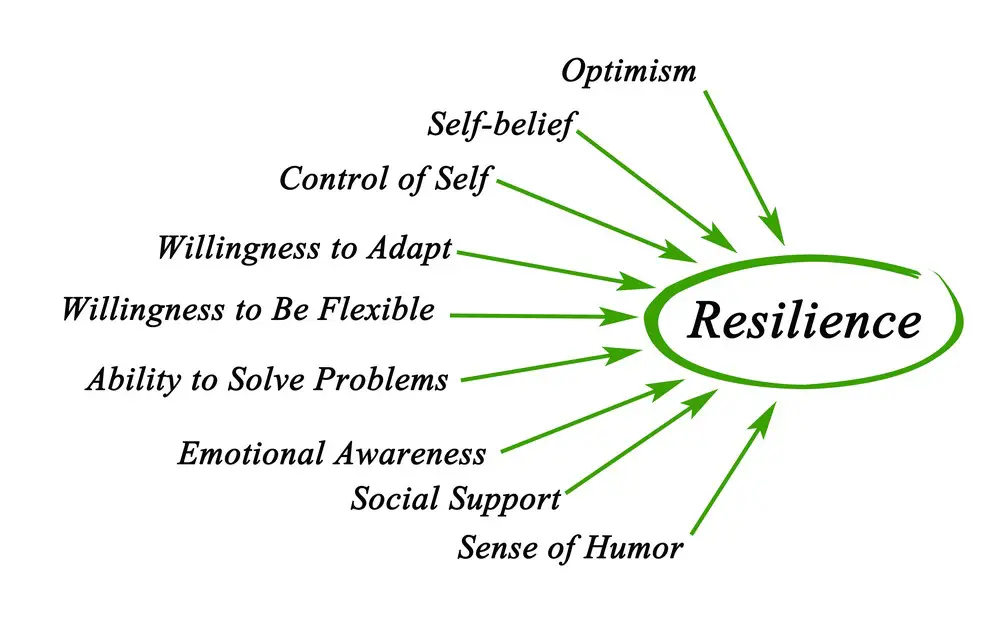As a BetterHelp affiliate, we receive compensation from BetterHelp if you purchase products or services through the links provided
In this article, seven professionals, including CEOs and Founders, share their experiences of overcoming trauma or grief through resilience. From coping with the loss of a loved one to transforming business loss into an opportunity, these leaders provide a range of insights into the power of resilience in the face of adversity.
- Coping With the Loss of a Loved One
- Navigating a Crushing Business Crisis
- Finding Strength in Grief Through Dedication
- Surviving Cancer and Becoming an Entrepreneur
- Facing and Coping With Sudden Loss
- Overcoming the Stress of a Professional Setback
- Transforming Business Loss Into an Opportunity
 1. Coping With the Loss of a Loved One
1. Coping With the Loss of a Loved One
When someone experiences the loss of a loved one, they often face intense emotions as part of their grief response. Resilience enables the suffering individual to acknowledge their emotions, seek support from friends and family, and engage in self-care activities.
They may actively work through their grief by attending support group sessions, pursuing therapy, and turning to healthy coping mechanisms such as journaling or mindfulness. Their resilience enables them to continue to adapt to life without their loved ones and helps them find meaning through new experiences.
While resilience doesn’t eliminate the pain of losing a loved one, it acts as a buffer. It enables the suffering individual to accept that they must move forward to continue to grow and pursue their purpose.
Elreacy Dock, Thanatologist and Death Educator

2. Navigating a Crushing Business Crisis
Resilience played a pivotal role when our company faced a significant financial setback. By adopting a positive outlook, focusing on solutions rather than problems, and being adaptable to change, we navigated through the crisis, learning valuable lessons that have since fortified our business operations and strategy.
Einav Biri, CEO, FARUZO
3. Finding Strength in Grief Through Dedication
From personal experience, dedication was a crucial part of getting over a very big loss. The sadness was too much to handle when a close family member died. However, strength started to build when reaching out to close friends, a therapist, and neighborhood support groups.
During the worst parts of grief, their constant company and support were a vital safety net. They listened and pushed to talk about feelings, which gave a deep sense of connection and understanding.
This support system gave me the courage to get professional help and try things like writing in a journal and practicing awareness. Over time, these relationships provided the power, direction, and resilience needed to deal with the complicated feelings that come with grief.
This personal experience showed that perseverance often grows when relying on the kindness and understanding of others when life is hard.
Nilesh Rakholia, Director, Abelini

4. Surviving Cancer and Becoming an Entrepreneur
Facing a diagnosis of testicular cancer was a significant, life-altering experience that tested my physical strength and emotional resilience. The initial shock and fear were overwhelming, but I quickly realized that resilience would be my greatest ally on this journey.
Throughout the grueling treatments, the countless doctor’s appointments, and the emotional roller coaster, I learned to channel my inner strength and maintain a positive mindset. I surrounded myself with a support network of family and friends who provided unwavering encouragement, which made all the difference.
After conquering cancer, I channeled my newfound strength and perspective into something positive and launched Alloy. I approached the challenges of entrepreneurship with the same unwavering resolve I had used to fight the disease. It was a real turning point, and the experience fueled me to do whatever was necessary to make Alloy successful!
Brandon Aversano, Founder, Alloy
5. Facing and Coping With Sudden Loss
I experienced the sudden loss of a close family member in a car accident. This traumatic event left me devastated and overwhelmed with grief for months. However, I had to develop resilience over the years, which helped me cope.
I reached out to friends and family for emotional support. I understood that talking about my feelings and sharing my grief with loved ones could provide comfort and connection. Recognizing the severity of my grief, I also sought help from a therapist or counselor specializing in grief counseling.
This allowed me to work through my emotions in a structured and supportive environment. I also pulled myself out of the depressed stage and prioritized self-care activities such as regular exercise, maintaining a healthy diet, and getting enough sleep.
These practices helped me maintain my physical and emotional well-being during a difficult time. I also practiced mindfulness and meditation to stay present and manage overwhelming emotions.
Joe Li, Managing Director, CheckYa

6. Overcoming the Stress of a Professional Setback
During a significant professional setback, resilience was crucial to my recovery process. After losing a pivotal client, I experienced immense stress and disappointment.
However, by adopting a forward-looking perspective, learning from the experience, and actively seeking new opportunities, I was able to navigate through this challenging period, eventually securing new, valuable clients and restoring business stability.
Amanda Miller, CEO, Angel Numbers Guru

7. Transforming Business Loss Into an Opportunity
Starting an outdoor-gym-equipment business has its ups and downs. Once, a major storm destroyed a large portion of our inventory days before a significant sale event. The heartbreak was palpable, seeing the hard work washed away.
However, I channeled my energy into a positive mindset rather than succumbing to despair. Remembering why I started this venture, I rallied my team, sought immediate solutions, and reached out to our loyal customer base with honesty about the situation.
Their support was overwhelming. Our resilience transformed a potentially crippling loss into an opportunity, deepening our bond with the community.
Lucas Riphagen, Co-Owner, TriActiveUSA
Turning Resilience Into Your Superpower: A Blueprint for Bouncing Back
You’ve just read through inspiring stories of resilience from people who’ve truly been in the trenches. From dealing with grief and loss to overcoming significant professional setbacks, each person’s narrative is a testament to the incredible power of resilience. But how can you translate their insights into actionable steps in your own life? Let’s dive in.
Coping With the Loss of a Loved One
- Join a Support Group: Take a cue from Elreacy Dock and consider joining a grief support group where you can find empathy and mutual understanding.
- Journaling: Sometimes, putting pen to paper can be therapeutic. Jot down your feelings, your highs, your lows.
- Reach Out: Avoid leaning on family and friends when grappling with loss.
Navigating a Crushing Business Crisis
- Solution Focus: Like Einav Biri, steer your attention toward solutions, not just problems. A proactive approach often unravels previously unseen opportunities.
- Consult Your Team: A crisis is not a one-person problem. Engage your team in brainstorming solutions.
- Be Adaptable: The only constant in business is change. Flexibility can be your best friend during a crisis.
Finding Strength in Grief Through Dedication
- Talk it Out: Inspired by Nilesh Rakholia, don’t bottle up your emotions. Find someone you trust, and open up about your feelings.
- Mindfulness Practices: Mindfulness can help ground you when your emotions feel overwhelming.
- Seek Professional Help: Sometimes, we need an expert to help us navigate our emotional maze.
Surviving Cancer and Becoming an Entrepreneur
- Solid Support Network: Follow Brandon Aversano’s footsteps and surround yourself with a support network you can rely on.
- Channel Energy Positively: Once you’re through the tough part, use that resilience to fuel your next adventure, whether it’s a business or a passion project.
Facing and Coping With Sudden Loss
- Immediate Support: Take a leaf from Joe Li’s book and call your closest friends or family for immediate emotional support.
- Structured Therapy: It’s okay to seek professional help. A therapist can guide you through a structured healing process.
Overcoming the Stress of a Professional Setback
- Analytical Approach: Take Amanda Miller’s advice and scrutinize what went wrong objectively, learning valuable lessons for the future.
- Network: Use your professional connections to find new opportunities to get you back on track.
Transforming Business Loss Into an Opportunity
- Team Rally: As Lucas Riphagen did, gather your team for a brainstorming session. A collective mind often sees solutions that an individual might overlook.
- Transparency with Customers: Honesty can build stronger bonds with your customer base.
These stories show that resilience is not a mere buzzword but an actionable tool for transformation. Your journey may be unique, but the steps to building resilience are universally effective. So why wait? Take these cues and start building your resilient self today! ?

Hey, Doc, Do I Need You?”: Recognizing the Signs It’s Time for Professional Help
If you find that despite your best efforts, you’re stuck in a rut of negative thoughts, feelings, or behaviors, it might be time to consider seeking help from a therapist or psychiatrist. Here are some signals to look out for:
- Persistent Sadness or Anxiety: If you find it hard to shake off the blues or have constant anxiety for more than two weeks, it’s a sign.
- Drastic Mood Swings: One moment, you’re on top of the world; the next, you’re in a pit of despair.
- Disturbed Sleep Patterns: Either you’re sleeping too much or too little. Both are red flags.
- Social Withdrawal: If you pull away from friends and family, isolating yourself can be a warning sign.
 “The Goalpost is Moving, Right?”: Setting Goals and Measuring Progress
“The Goalpost is Moving, Right?”: Setting Goals and Measuring Progress
Setting goals is like planting a flag at the top of your metaphorical mountain. It’s where you want to get to; the challenge is finding the path.
- Be SMART: Set goals that are Specific, Measurable, Achievable, Relevant, and Time-bound.
- Celebrate Small Wins: Every tiny achievement is a step toward your larger goal. Pat yourself on the back, maybe even a small treat.
- Use Tools: Whether it’s a journal, a mobile app, or a wall calendar, use tools that help you track your progress.
- Regular Check-ins: Sit down every week or month to evaluate. Are you closer to your goals? What can you do better?
“Your Personal Progress Report”: Keeping Tabs and Fine-Tuning Your Path
Even astronauts must check their course and make corrections, so why shouldn’t you? Keeping track of your progress helps you know how far you’ve come and what changes you may need to make.
- Visual Aids: Create a visual vision board or a progress chart to represent your progress visually.
- Accountability Partner: Team up with someone who can help keep you on track. It can be a friend, family member, or even a mentor.
- Feedback Loop: Don’t shy away from constructive criticism. It’s a fantastic tool for growth.
- Reset if Needed: If you’ve veered off course, it’s perfectly okay to reassess and change your goals.
By integrating these elements into your journey, you’ll be better equipped to meet life’s challenges head-on. After all, life doesn’t come with a guidebook, but with resilience, goal-setting, and perhaps expert guidance, you’ll be well on your way to writing your story of triumph. ?
About Jacob Maslow
After surviving the traumatizing events of 9/11, I took it upon myself to heal through helping others. I’m the primary caregiver of my children and understand from first-hand experience the lonely paths you have to walk as a partner and parent when leaving an unhealthy relationship.
We’re all echoing in a dark space that doesn’t have to be this empty, and that’s been my mission since finding solace and recovery in therapy: To help comfort others who are still in shock and at the prime of their struggle.
I came across BetterHelp after searching for this type of community. I wanted to belong to a body of proactive therapists and supportive therapy veterans that allowed me to see other sides of the story.
It was unconventional, and that’s what attracted me most. During my most challenging times, when my ex-wife completely cut me off from my children, I found comfort and clarity through BetterHelp.
Instead of being chained to a strict therapist recommendation, I was in charge of who I felt understood my struggle most. That allowed me to find my true peace, as I was reunited with those who read behind my words and had first-hand experience with my trauma.
Recovery is a choice; with BetterHelp, that choice will be a few clicks away. You can join their couples-oriented platform, Regain.us, for those stuck with family estrangement and toxic relationship patterns.
- How Having Cybersecurity Protection Helps You Relax - April 25, 2025
- 8 Reasons Why Spending Time Outside Calms You Down - April 25, 2025
- 5 Helpful Ideas for Managing Stress During a Plumbing Emergency - April 24, 2025
This site contains affiliate links to products. We will receive a commission for purchases made through these links.


 1. Coping With the Loss of a Loved One
1. Coping With the Loss of a Loved One
 “The Goalpost is Moving, Right?”: Setting Goals and Measuring Progress
“The Goalpost is Moving, Right?”: Setting Goals and Measuring Progress
